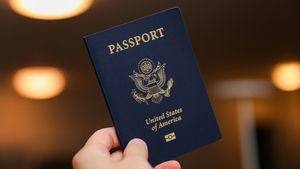A typical season of RuPaul’s Drag Race now delivers tens of thousands of dollars in prize money, often with more than one contestant scoring coins. But as Bianca Del Rio often notes, a good chunk of that money goes to taxes. And while you may not have lip-synched your way to riches this year, similar tax rules apply to that gig work or side hustle you’re been juggling, so let’s make sure you keep more of what you earn.
Tax Day was this week, and as more queer people take on things like side hustles to make ends meet, they sometimes find themselves slapped with a hefty tax tab when filing season rolls around. That’s because money earned from side hustles or other independent contractor work doesn’t have taxes taken out when you get paid, but you still owe taxes on this money at the end of the year. Many of us don’t realize this, so we spend every dollar, then end up with a nasty tax bill in April because we didn’t set aside enough of what we made.
If you take both federal and state income taxes into consideration, RuPaul’s Drag Race champions and other game show winners (Gabby finally got her Traitors money!) can probably expect taxes of 25 to 40 percent on their bounty, meaning up to $80,000 of our Next Drag Superstar’s winnings of $200,000 could go to government coffers instead. Ick. The winner might get some of that money back when they file, but it’ll depend on what’s going on with the rest of their income this year. Also, if the winner lives in a state that doesn’t have income tax, it doesn’t matter, because they earned the prize money while working in California, so the California state taxes apply.
The winner isn't the only contestant to take home prize money for which these rules apply. Last season, finalists were also given some bread ($25,000 each, plus a $2,000 cash tip "courtesy of Olay Body"), so crown contenders Lexi Love, Jewels Sparkles, Onya Nurve, and Sam Star may all want to enlist accountants. Additionally, Suzie Toot has already snatched $50,000 for winning the Lip Sync Smackdown. Miss Congeniality will likely take home $10,000, if precedent holds. And episode maxi challenge winners take home smaller amounts ($5,000) that also need accounting for.
Taxes are chronically confusing because there are a gazillion ways to lower your income on paper using things like adjustments, deductions, and credits (this is how billionaires get away with paying less, or sometimes no taxes at all). Even the tax rate itself varies, because the U.S. has a marginal tax rate system: As you make more money, those higher tiers of earnings are taxed more heavily. For federal income taxes, the rate ranges from 10 to 37 percent, depending on your overall taxable income.
It’s important for us as queer people to know the basics of taxes so that we can live more financially stable lives. This means caring a little more about taxes year-round, rather than sweeping everything under the rug and then freaking out in mid-April. When you’re confident on how much your refund will be, you’re able to plan ahead and make money moves that give you more flexibility and freedom. The average refund is typically just over $3,000; for many Americans, it’s the single biggest cash windfall of the year, and with how things are going right now, spending some of that on a gaycation might be good for your well-being.
If you’re licking your wounds after tax season this year, you’re certainly not alone; anywhere from a quarter to a third of tax filers end up owing money. We want to keep unexpected tax bills to a minimum, though, because they can drain your savings or force you into credit card debt, which we want to avoid as we stare down ongoing tariff tantrums and the possibility of a recession.
In summation, set some of your hustle money aside for taxes throughout the year. You’ll thank yourself later.
Nick Wolny is Out magazine’s finance columnist. He writes Financialicious, a personal finance newsletter tailored toward queer readers, and is working on his first book, Money Proud, which releases later this year. NickWolny.com @nickwolny






































































